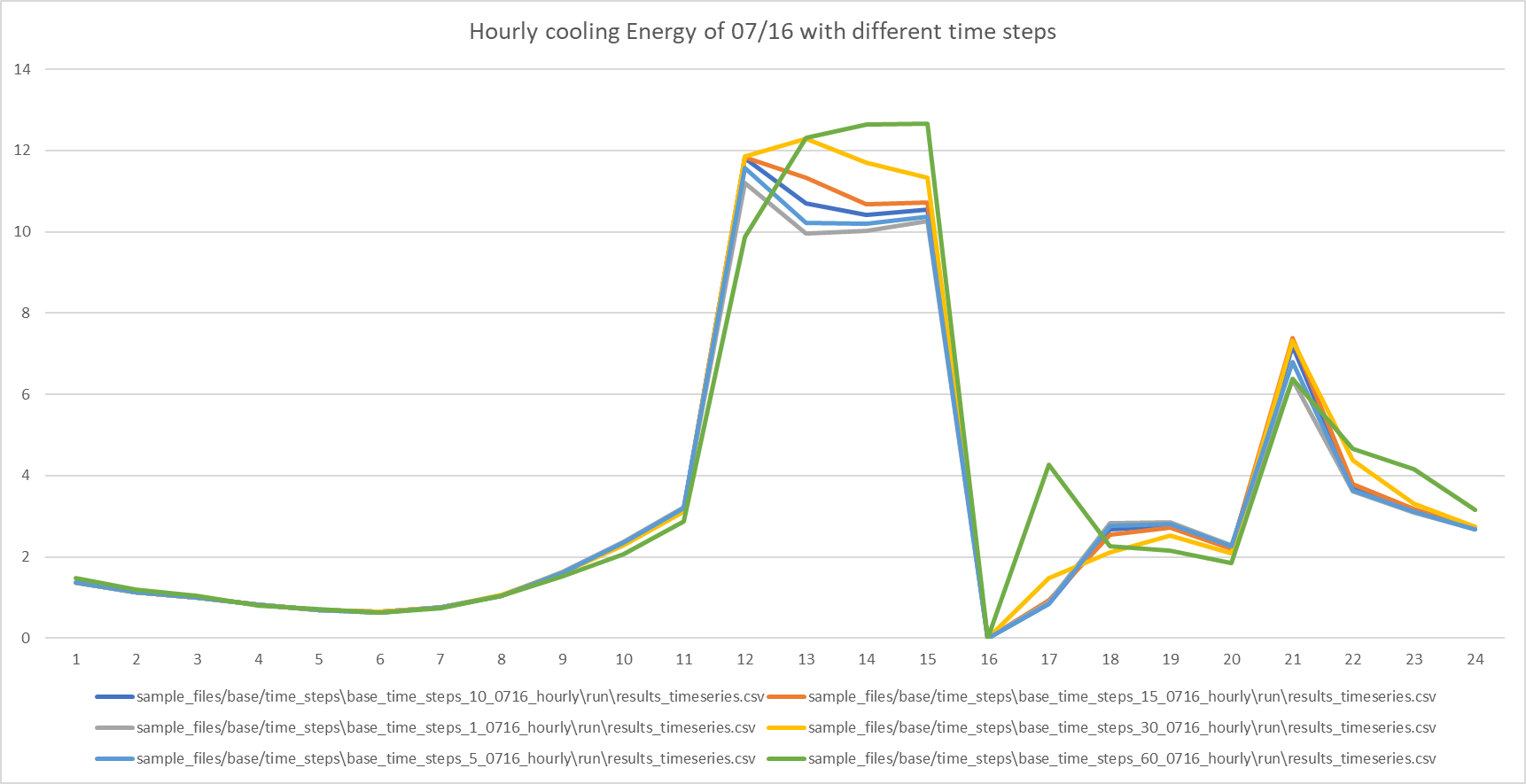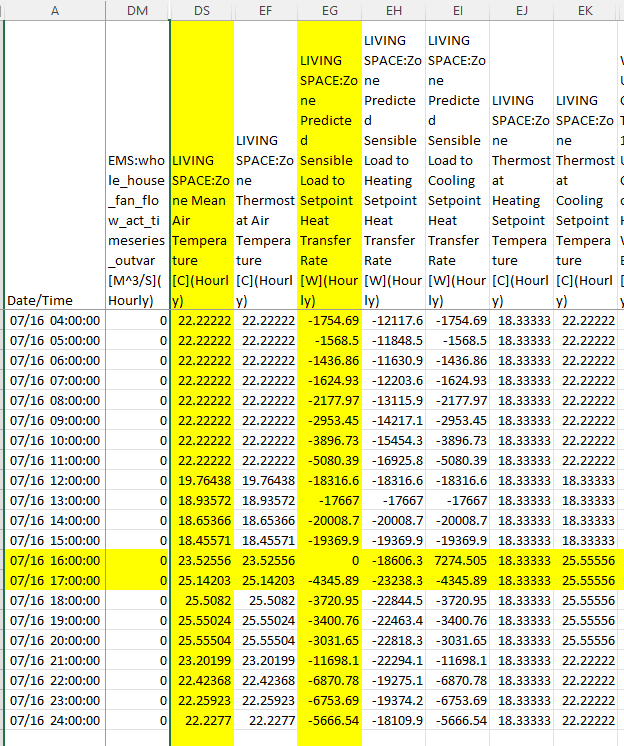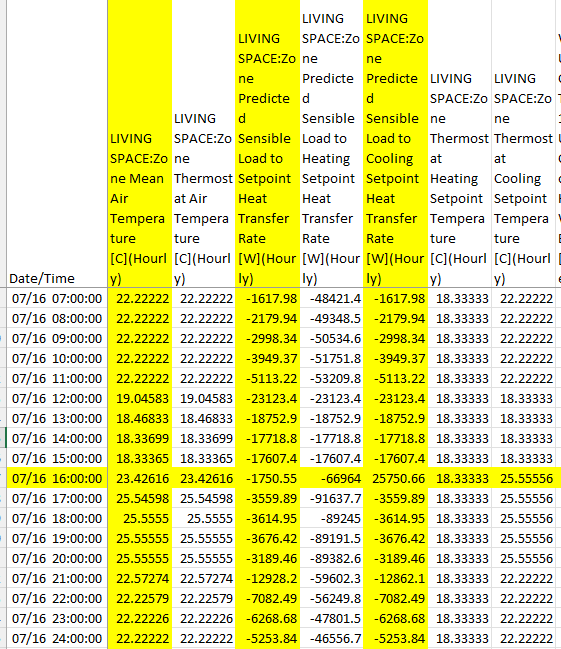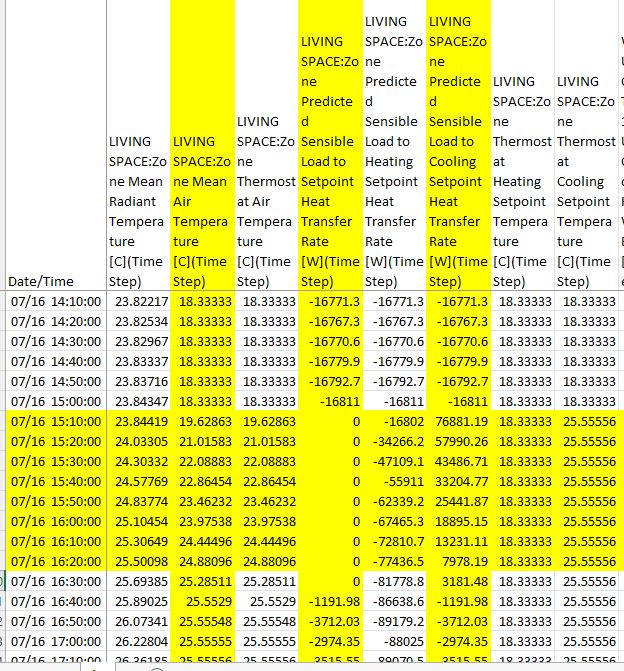Hi, all,
I am running an hourly simulation for a specific day in summer for a home in Phoenix. I have attached a precooling schedule for it. The schedule description is:
00:00 - 11:00 : 72F
11:00 - 15:00 : 65F (Precooling)
15:00 - 20:00 : 78F (Peak period)
20:00 - 24:00 : 72F
I have run different time steps and found hourly simulation results very suspicious, not only because of lack of accuracy, but also it showed a different trend. There's a cooling energy spike after 15:00 (end of precooling).

And I tracked down other E+ output variables for those hours and found:

We can see that from 17: 00 to 20: 00 the zone air temperatures are below setpoints, but the predicted loads are negative implying cooling to be delivered. I can understand if there's only one last hour that the temperature decay is not able to cover the whole loads in that hour so extra cooling is needed, but there're consecutive hours. This makes me confused by what zone temperature/setpoint temperature E+ is using in calculating loads.
I did a few other things to investigate it more:
- changed minimum system time step from 0 (60min) to 10min.

16:00 looks confusing. why there's a cooling energy if LIVING SPACE:Zone Predicted Sensible Load to Cooling Setpoint Heat Transfer Rate [W](TimeStep) is positive?
- Compared with the 10 min simulation

10min simulation results look reasonable to me.
Is there any one who is familiar with E+ load calculations that can give us some insights of this issue?




